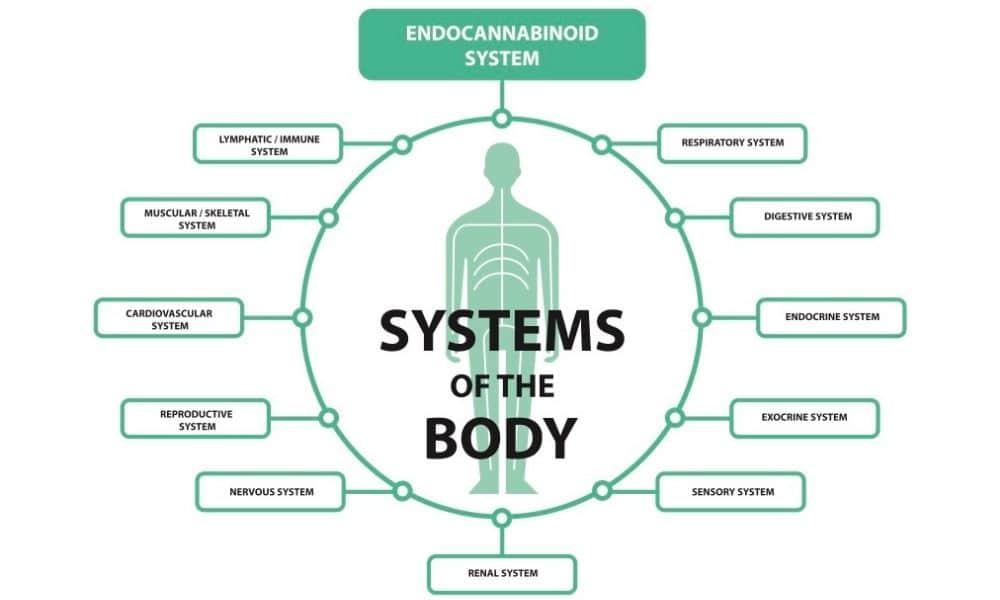As cannabis use grows, we’re learning more and more about the benefits it may provide. By now, we know that the various cannabinoids in the plant can treat a wide range of symptoms, including pain, inflammation, stomach issues, anxiety, and more. THC is one of the most well-known and most abundant cannabinoids. Here, we’ll take a look specifically at THC effects on body systems.
How THC Works in the Body
When you ingest cannabis, THC (and other cannabinoids) enter your body and move into your bloodstream. These molecules eventually reach your endocannabinoid system (ECS), which is the system responsible for maintaining balance in your various body systems. It manages such systems as:
- Mood
- Appetite
- Metabolism
- Digestion
- Immune function
Typically, when one system gets thrown out of whack, your body produces endocannabinoids on demand. These endocannabinoids bind with the cannabinoid (CB) receptors in the ECS to unlock specific effects that help restore balance.
THC acts similarly to endocannabinoids. It binds with the CB receptors in your ECS, producing certain effects, including pain relief, increasing your appetite, reducing nausea, and more.
THC Effects on Your Body Systems
THC affects many of your body systems, one of the most notable ones being your central nervous system. When THC binds with CB receptors, it increases blood flow to your prefrontal cortex, which is part of what triggers the high you feel. The prefrontal cortex manages decision-making, attention, and several executive functions. THC also triggers the reward pathways in the brain, which contributes to the euphoria you feel.
THC can help with digestive issues, particularly nausea and vomiting. As these symptoms are common side effects of chemotherapy, many cancer patients use cannabis to ease them. Not only that, but THC can stimulate the appetite and make food smell and taste better, making it easier for cancer patients (and others facing trouble with food) to eat.
THC can help to alleviate pain and inflammation in the body. It can be beneficial for those with conditions like arthritis, multiple sclerosis, neuropathy, and other forms of chronic pain. It disrupts pain signals temporarily, which provides the relief you need to function more normally during the day or relax and fall asleep at night.
How Much THC Do You Need for Beneficial Effects?
So, how much THC do you need to take to obtain relief? The answer is that it depends. Everyone is different, and THC affects everyone differently. What’s enough for one person may be too much, or too little, for another. The best way to find what works for you is to experiment. Start with a low dose to avoid overloading your system and gradually increase the amount you take until you find what works for you.
THC interacts with your endocannabinoid system, which is vital for maintaining balance in various systems throughout your body. While we still have a lot to learn, we do know that the cannabinoid, along with other compounds in the cannabis plant, has the potential to treat a wide range of symptoms and improve your quality of life.



